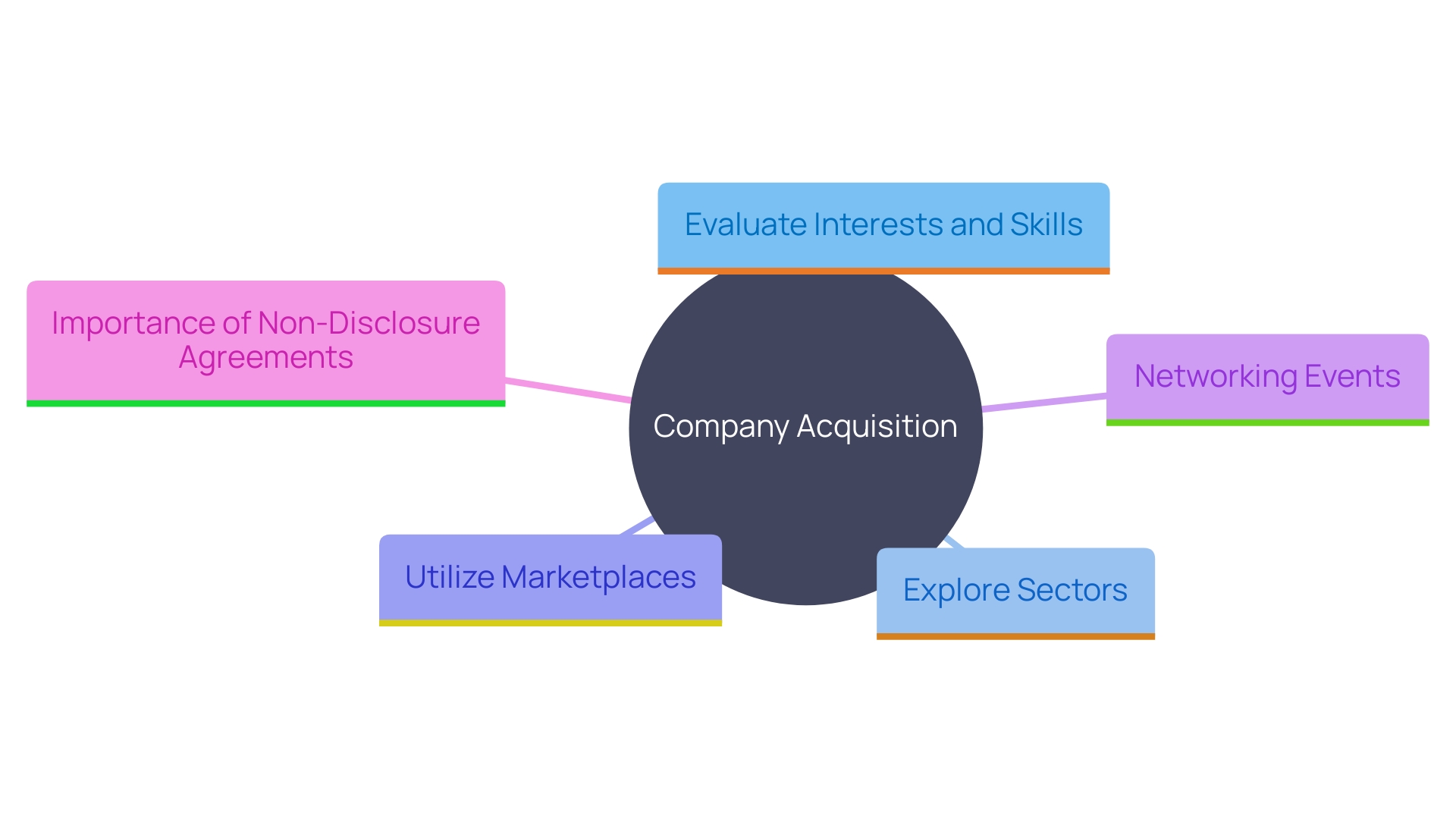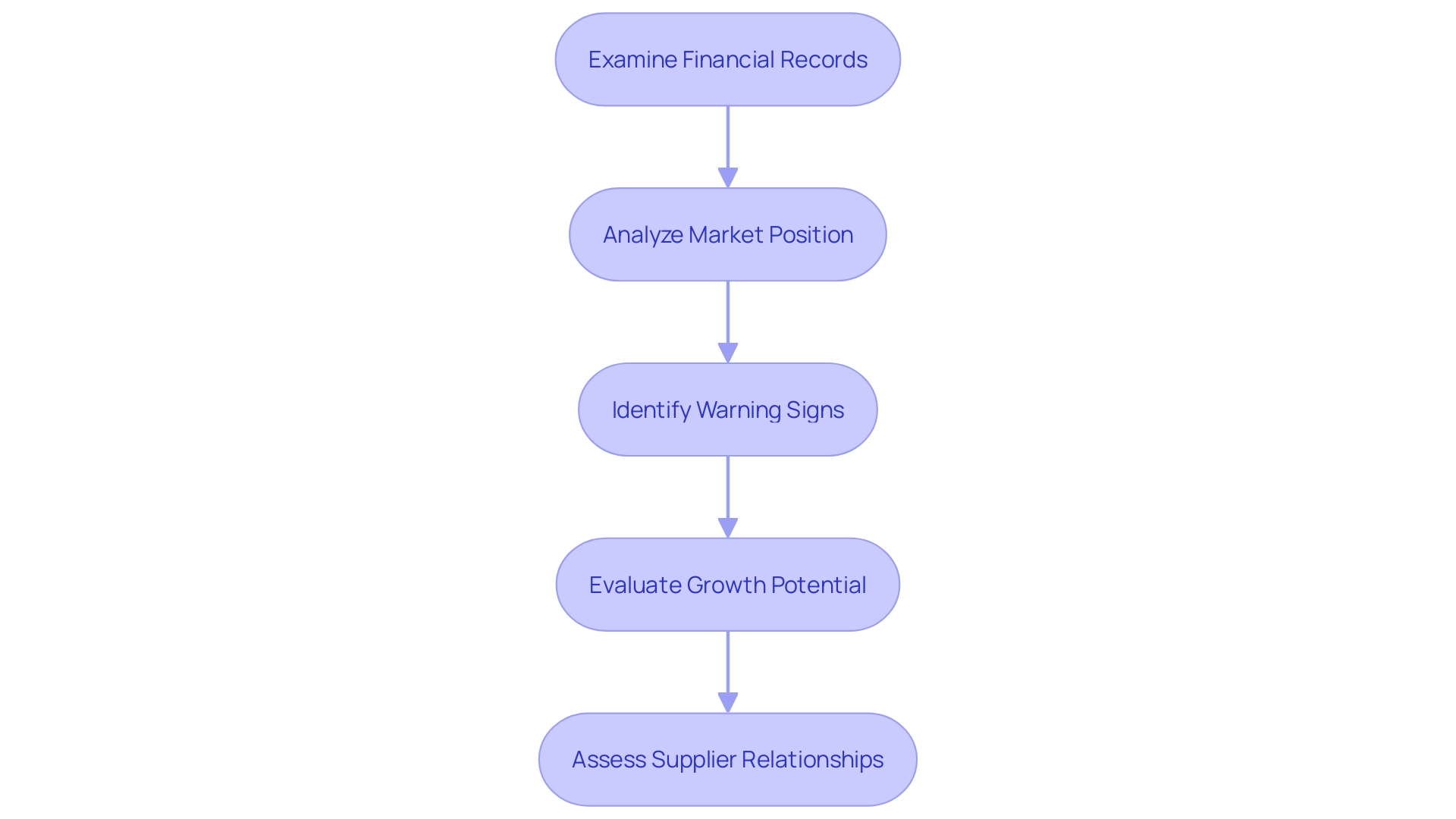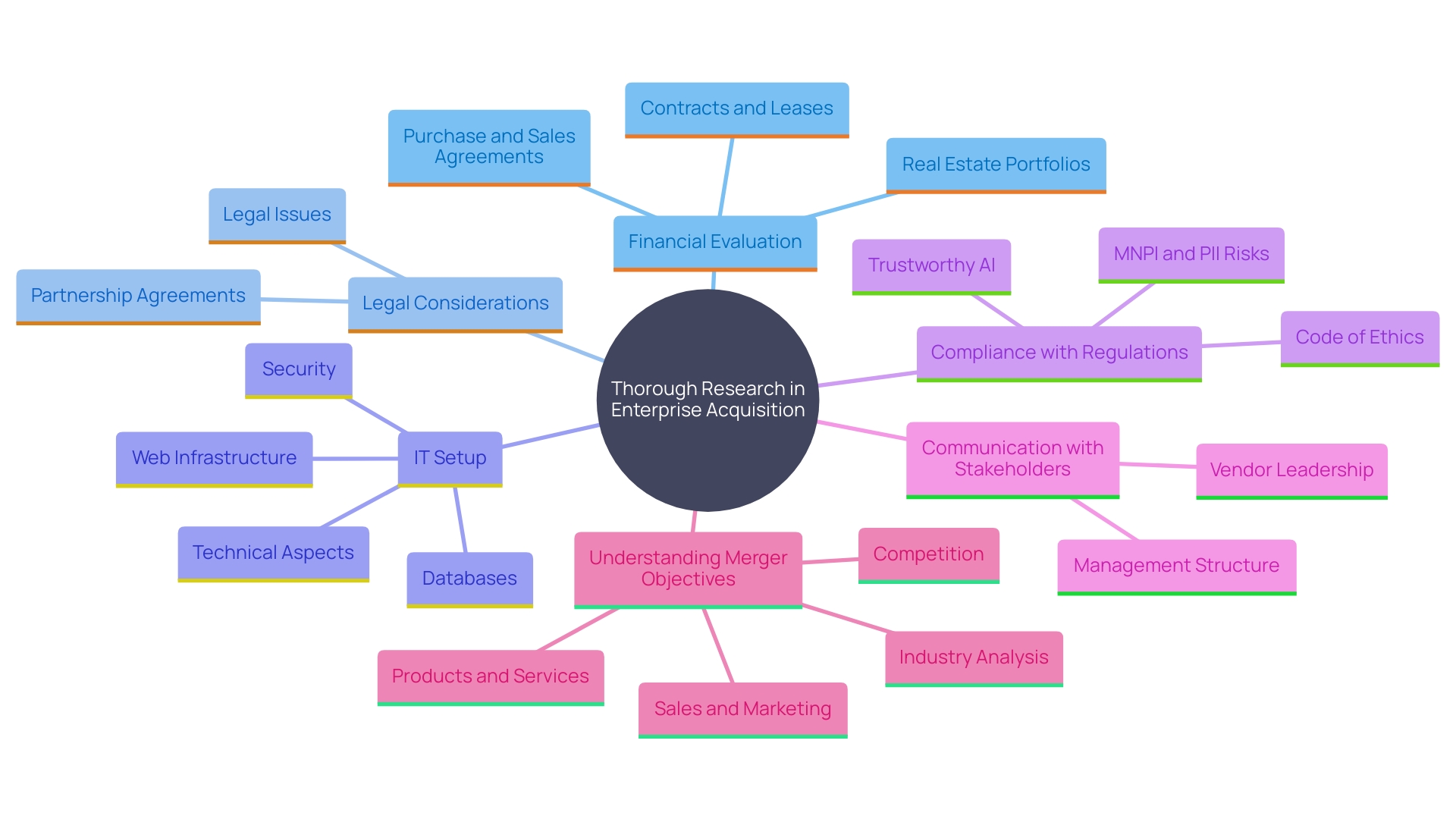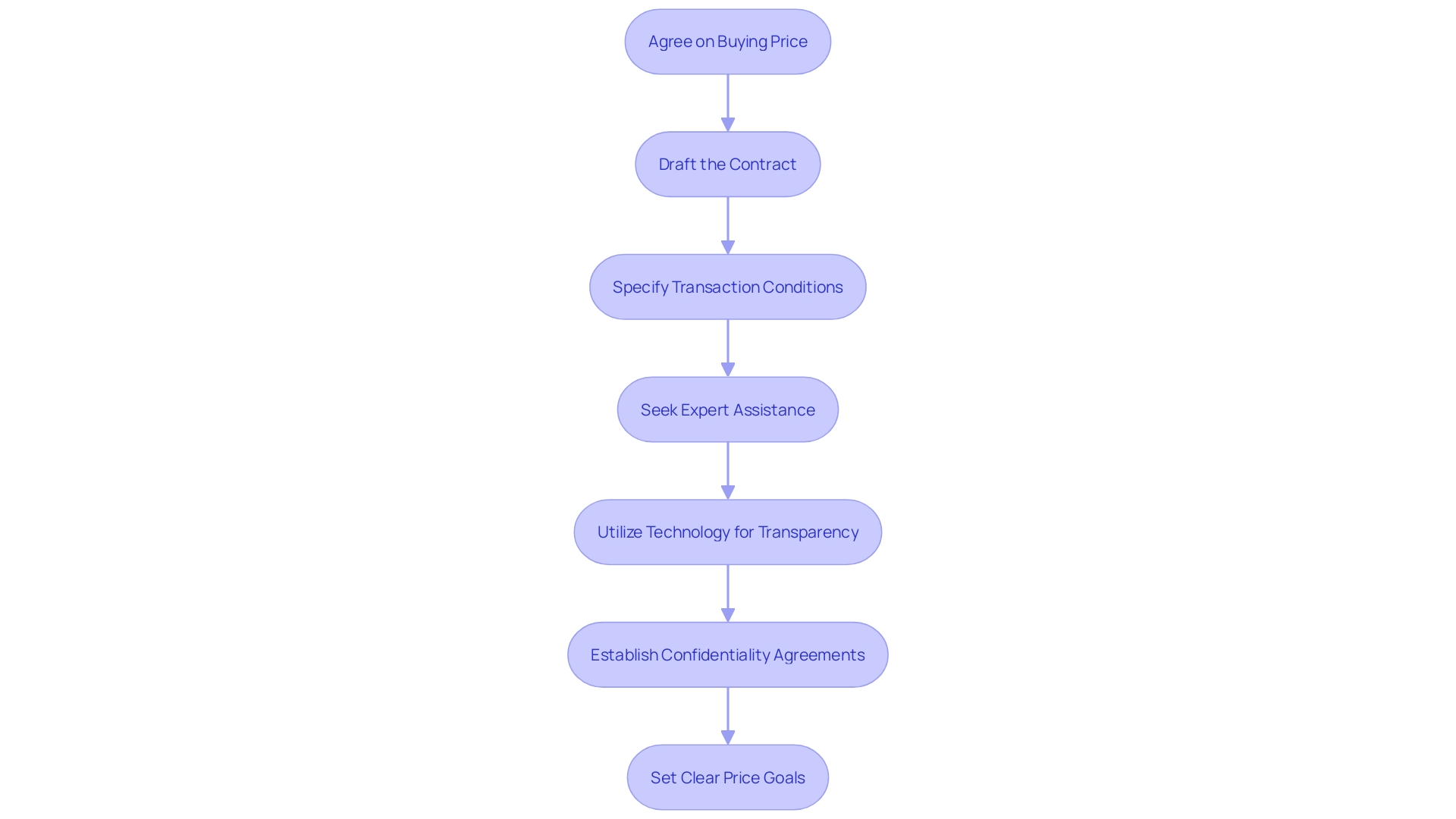Introduction
Starting a business venture can be an exhilarating and promising endeavor that involves thorough planning and strategic actions to achieve success effectively and efficiently.In this article it discusses the steps in buying a business. From identifying suitable opportunities, to completing the deal.These steps are meant to assist buyers in navigating the complexities of the process by offering helpful insights and practical tips for making well informed decisions.
Find out how to recognize companies that match your passions and skillssets assess their stability and standing in the marketplace and carefully perform thorough research to reveal any unforeseen hazards. Understand the skill of bargaining to secure the favorable buying price create an extensive purchase contract and close the deal with certainty . By adhering to these guidelines prospective business owners can navigate through the intricacies of acquiring a business and pave the way, for a future.
Step 1: Finding the Right Business
Identifying the company to purchase is essential for a successful acquisition journey! Begin by evaluating your interests and skills to align them with opportunities that inspire you. Explore sectors and types of enterprises that align with your passions and strengths. Utilize platforms such as marketplaces or local listings alongside brokers to discover available enterprises for sale. For instance, "LoopNet not only highlights enterprises but also offers chances to acquire or lease commercial properties in various sectors, such as office spaces or retail shops."
'Make sure to attend networking events to meet professionals in your industry and discover opportunities that may not be widely advertised. It's worth noting that small enterprises are proving resilient based on a Fiserv report and the outlook for the upcoming year looks promising. This could lead to better conditions for acquiring a company.'.
Create a list of companies that attract your attention and fulfill your criteria effectively. Doug Bend from Bend Law Group stresses the significance of having a non disclosure agreement before disclosing any confidential details – especially when competitors might pretend interest to gather insights without any actual intention to purchase. By following these guidelines and with diligence in your search process for a business opportunity that aligns not just with your abilities but also harbors opportunities, for expansion and achievement.

Step 2: Evaluating the Business
After identifying organizations of interest it's essential to carry out a comprehensive assessment. Start by examining records tax documents and operational data from recent years to grasp the financial status and patterns. Explore further into the organization's position in the market; consider its clientele and competitive environment. Be on the lookout for any warning signs, like decreasing sales or high levels of debt that might suggest issues.
Assess the potential for expansion in the organization. Make sure it matches your vision for it. For instance a store selling power lawn mowers situated in a developing region has access to a wide range of customers and could see advantages from a growing population. This well-planned location draws a steady stream of new clients, from both city and countryside areas, enhancing its attractiveness.
Furthermore * you should also look into the connections. Collaborations the organization has with its partners and suppliers.* Assess the effectiveness and trustworthiness of these relationships * making sure there isn't much dependence on certain suppliers that could lead to potential risks. Take a look at the organization's cost breakdown, which includes both fixed and variable expenses to gain a deeper insight into how the business handles its financial obligations.
Let's examine the financial performance closely to evaluate how effectively the organization has been managed so far by looking at aspects like revenue generation and profit margins alongside cash flows and other crucial financial indicators. This kind of analysis assists in forecasting revenue streams and understanding potential market risks that may arise in the future. For example; delving into data spanning up to five years can offer valuable insights, into how efficiently operations are running and what the market demand looks like.
By evaluating these factors in a systematic manner you can determine whether the organization presents a promising investment opportunity and is poised for future success.

Step 3: Conducting Due Diligence
Thorough research is essential when acquiring an enterprise as it involves an examination of different aspects of the organization beyond just financial and legal considerations like its IT setup and compliance with environmental and tax regulations. This comprehensive evaluation encompasses the status of the entity along with legal risks and adherence to tax laws to pinpoint all possible risks involved in the venture. Communicating with employees, customers, and suppliers can provide insights regarding the organization's day-to-day functions and standing in the industry. Michael Black, from Richter highlights the importance of grasping the objectives driving mergers and acquisitions to stay on track and maintain a clear vision during the procedure. Essentially speaking about diligence is a way to support your investment choice by unveiling any concealed risks and affirming the true value of the venture.

Step 4: Negotiating the Purchase Price
Once you've grasped the importance of the organization's worth and the possible risks involved in it, everything comes down to discussing the buying price in a manner that aligns with your assessment and research results as being crucially important. Nailing a deal requires transparent communication and aiming for mutual benefit for everyone involved in the transaction process. Prepare yourself to discuss details such as payment arrangements and conditions along, with any assets that might be part of the deal.
Roger Fisher along with William Ury and Bruce Patton stress the significance of grasping the art of negotiation in their work "Getting to Yes." They promote that refining negotiation skills is essential for obtaining a deal for oneself. One way to assess successful negotiations is through repeat transaction rates; higher rates suggest that your agreements are advantageous for your clients. Furthermore, effective negotiations should result in profitable deals for your company; ensuring profitability can be achieved by closely monitoring profit margins.
Flexibility plays a role in negotiations as well. Adept negotiators are quick to adapt to new insights and modify their approaches while maintaining composure during tense moments. Preparation and thorough research are often overlooked yet aspects of negotiation success; skilled negotiators enter discussions well equipped with comprehensive information about their offerings and clients plus market insights to effectively respond to inquiries and alleviate doubts while directing conversations, towards favorable outcomes.
The latest report from the Fiserv Small Business Index emphasized how small businesses have shown resilience amidst changing circumstances and are looking forward to a positive year ahead with optimism thanks, to successful negotiations leading to mutually beneficial outcomes and strong long lasting business connections.
This stage is essential as your advocacy skills can lead to savings for you. Keep calm when emotions start to rise and steer clear of being manipulated in someone Transaction. By concentrating on these points you can make sure that your negotiations are successful and advantageous.
Step 5: Drafting the Purchase Agreement
After coming to a consensus on the buying price it is essential to prepare a purchase contract. This official document intricately lays out the conditions of the transaction, such as the buying cost, payment schedules and potential conditions. It specifies the assets involved in the sale and any assurances or commitments offered by the seller. Seeking assistance, from an expert is crucial to guarantee that the contract is comprehensive and safeguards your concerns. Created with care, to detail and precision are these intricate arrangements exemplified by the wealth of publicly revealed merger contracts over a span of 21 years.
Utilizing instruments for contracts can enhance the process and foster cooperation between legal and sales teams in a constructive manner. For example the use of technology has made a significant impact increasing transparency and overcoming obstacles. This empowers teams to advance business goals with compliance. Research indicates that earn out arrangements, which align the interests of both parties after an acquisition and thorough due diligence, which verifies all shared information and identifies risks, are essential elements for a successful deal.
Before revealing any data make sure to establish a reliable mutual confidentiality agreement first and foremost Trust your instincts and set a clear price goal to steer clear of the arduous and expensive procedure of finalizing an M&A deal with disinterested parties Crafting a meticulous sales contract is crucial, for ensuring a seamless and prosperous transaction

Step 6: Closing the Transaction
The last part of the buying process involves completing the transaction by sorting out all the financial aspects of the purchase in detail with your legal and financial advisors to ensure all required paperwork is ready for action. Before moving with anything else make sure to review the purchase agreement thoroughly to ensure that all conditions have been met and there are no unexpected surprises at the last minute. Once everything has been. Confirmed without any issues present, in sight then proceed by signing the necessary documents required for ownership transfer and transferring the funds to officially take over ownership of the business.
This stage signifies an achievement; however it is crucial to stay cautious of possible challenges ahead.As suggested by Doug Bend from Bend Law Group,P.C. make sure to have a mutual non disclosure agreement in place to safeguard your sensitive information from rivals who may be seeking details, without sincere intentions to buy.
It's also helpful to conduct a Quality of Earnings (QE ) assessment to get a picture of the financial well being of the target entity. This evaluation as emphasized by professionals, in the field concentrates on the dependability and longevity of stated profits enabling you to make informed choices.
Contemplate this accomplishment and get ready for the thrilling adventure that lies ahead; acknowledge that you've completed actions to protect your investment and establish a solid groundwork, for upcoming triumphs.

Conclusion
Embarking on the path of acquiring a business involves steps that set the foundation for future triumphs ahead. Beginning with finding the perfect business to buy entails matching your passions and skills with prospects to ensure a meaningful connection both professionally and personally. Thoroughly assessing the stability of the business along with its market position and growth possibilities is key, to making well informed choices and steering clear of unexpected challenges.
Thoroughly examining a purchase enables buyers to identify unseen risks and evaluate the overall sustainability of the business effectively.The extensive evaluation covers not financial factors but also operational and regulatory issues crucial for a prosperous acquisition.Negotiating the buying price skillfully and creating a purchase contract establishes a strong foundation, for a successful deal by guaranteeing that all involved parties understand the terms and conditions clearly.
The final stages signify an accomplishment that requires us to stay alert and adequately ready to face any obstacles that could come our way. With plans in motion and every move taken thoughtfully ensures a bright future ahead with chances for development and success. Adhering to these principles. Accepting the journey wholeheartedly empowers upcoming entrepreneurs to skillfully maneuver through the intricacies of securing a business and lay the groundwork, for enduring prosperity.




